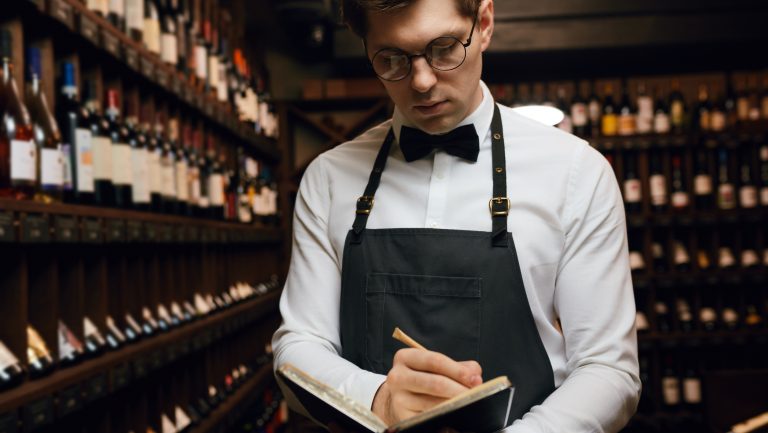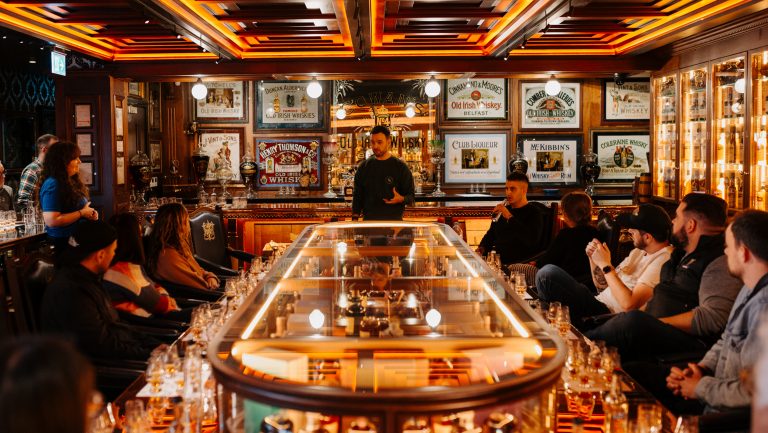Since mid-March, when restaurants and many retail businesses were forced to close, my phone has been ringing off the hook with calls from close friends and colleagues who suddenly found themselves out of work.
These wine sales reps, sommeliers, restaurant managers—people whom I consider some of the best in the business—ask me, “What do I do now? Is there any work in the vineyard? Can I get a harvest internship?” The conversations continued: “What did I learn from the last three, five, ten, twenty years working in this industry? What am I qualified for and capable of doing next?”
I don’t know how to answer these questions.

Don’t miss the latest drinks industry news and insights. Sign up for our award-winning newsletters and get insider intel, resources, and trends delivered to your inbox every week.
The wine and hospitality industries are made up of thousands of small, family-operated businesses. They attract employees who come to work out of a deep passion for wine, food, and hospitality, and an enthusiasm for learning a highly specific skill under the tutelage of an owner. Drawn by a connection to a place, a philosophy, a culture or a person—certainly not the promise of fame, fortune, or even a decent wage—they seek out jobs with Dan Barber or Nate Ready or Rajat Parr or Gabrielle Hamilton because these are visionaries with a rare commitment to their craft. It’s a system that offers the charm of working for a lifestyle business. And it’s a system that COVID-19 broke.
Consider Napa Valley, where I live. The wine industry here, which encompasses wineries, distributorships, retail shops, and restaurants, is made up of less than a dozen large companies running corporate businesses, and around a thousand Main Street mom-and-pop companies, all chasing the dream of the Napa Valley life. These Main Street businesses are the backbone of travel and tourism in the valley. It’s the same in every wine region and every major metropolitan city with world-class restaurants.
As fermentation tanks and restaurant dining rooms remain empty, there are tens of thousands of unemployed industry professionals armed with passion, an ability to work unusually hard, and resumes that show dedication to a job and an expertise in a specific vocation. And now, no clear future path. If their small business does not come back, or their passionate leader cannot make 50 percent occupancy pencil, what is next?
Compare this model to other industries. Before I came to wine, I had the luxury of developing my career skills in a corporate environment (at TIME Inc.) where I received training in multiple business areas, was reimbursed for my MBA, and placed on an executive track that ensured I was capable to work in every area of the business. This does not exist in the world of Main Street wine and hospitality.
Working at boutique wineries, distributorships, retail shops, and restaurants, you will enjoy a front row seat to some of the greatest global wine and food experiences on the planet. Yet these jobs typically do not offer business training unrelated to your specific role, including finance and accounting, sales and marketing, strategy and product development, to name a few.
Yet this is the necessary training that creates a broad skill set on a resume, and makes your career mobile, your capabilities transferable. Without the safety net of a large organization’s training and career trajectory, how do we prepare ourselves for the challenges of the next pandemic or the next great recession?
It’s not financially feasible for small family-run businesses to provide this sort of career development. As individuals in this industry, the responsibility falls to us. We have to prepare ourselves and our careers with education and training. We have to take a step back from passion and review practicality. I was fortunate to come from a workplace that created a culture of climbing the corporate ladder, where extra-curricular education was funded, and a manager’s reputation was built on how many of his or her hires went on to do bigger and better things. The small businesses that we work for may not have the luxury to operate in that way, but we can try to do this for ourselves.
We represent a tremendous talent pool rich with creativity and imagination and we need a better system for connecting our passion and abilities to the right job—even if that job requires learning new skills. I invite you to join me in brainstorming solutions. I am extending our successful Salon at Larkmead—a conversation series for industry professionals I founded in 2017—to create a place where we can have this discussion.
Our goal is to bring our community together on a regular basis to share ideas, mentorship opportunities, and resources that help each of us to explore, identify, and express our own capabilities and talents.
With a board of advisors, I plan to create a curriculum of TEDx-like seminars and virtual classrooms where we can learn transferable business skills in areas outside our expertise without the burden of a college tuition. We will lean on experts for questions like: “What is required for a sommelier to transition to working in a winery?” or “How can a restaurant manager cross train to work for a wine importer?” Come join the conversation, beginning on June 25.
The Salon at Larkmead: In 2017, at Larkmead Vineyards, a small group of wine industry professionals gathered for the first time to listen and learn from each other about the issues facing the wine industry. Coined the “Salon at Larkmead” as a casual meeting place for conversation, the group met three times a year under Dan’s guidance. When the pandemic hit, the Salons became focused on the future of wine, restaurants, wine retail, wine country travel and tourism, and on June 25 the Salon will be moderated by SevenFifty Daily’s executive editor, Kristen Bieler, to discuss the future of our workforce.

Dispatch
Sign up for our award-winning newsletter
Don’t miss the latest drinks industry news and insights—delivered to your inbox every week.
Dan Petroski is the winemaker at Larkmead Vineyards and founder and winemaker of Massican. Prior to a career in wine, Petroski spent ten years working for Time Inc. in various positions from editorial at Sports Illustrated to sales, marketing, and finance at TIME magazine. Petroski earned his MBA from NYU in 2004 and two years later pursued a career working as a winemaker in Napa Valley.








